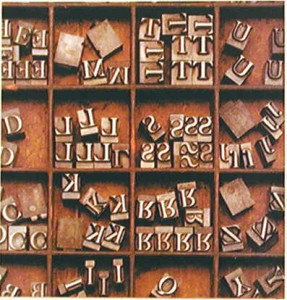Community
May 12, 2014
TEMiC in Review: Transitions and Inspirations
Continuing with posts featuring feedback from TEMiC, Katrina Anderson— an MA student at Simon Fraser University– writes about why she recommends the training event to other humanities students:
Looking back on my experiences at last year’s Textual Editing and Modernism in Canada (TEMiC) summer institute, I have realized what an excellent training opportunity it was for someone just about to begin her first year as an MA student. In many ways, the coursework, seminar discussions, and afternoon workshops prepared me for the transition from undergraduate to graduate studies. The assigned readings that corresponded with the theme “Editing Modernism On and Off the Page” anticipated many of the readings that I would encounter in my first graduate seminars. These seminars, which focused on Print Culture and Digital Romanticism, integrated many of the same issues that were raised during the week at TEMiC. Having already discussed digital and textual editing practices with students and scholars in the EMiC community, I was able to speak and write about them with confidence in my graduate coursework. It was especially helpful to have been introduced to the work of John Bryant, whose fluid-text approach now somehow seems to make its way into every essay that I write.
Aside from providing a solid background in readings on textual and digital editorial theory, the summer institute also helped me to find my current research project. I am hoping to develop an edition of the short stories of Katherine Hale, and my experiences at TEMiC are largely responsible for the conceptualization of this project. My interest in Hale as an author comes out of the research that I did in preparation for the summer institute, and without the knowledge that I acquired at TEMiC (as well as the introduction to digitization methods I received at Digital Editing and Modernism in Canada [DEMiC] /DHSI in Victoria earlier in the summer) I would not have considered a digital edition as something that someone with a humanities background and limited technical skills would be able to develop. I know the almost daunting amount of work that goes into such a project, however what I learned at TEMiC and DEMiC. DEMiC/DHSI gave me the vocabulary and framework I needed to see this as a task someone with my level of training would be able to pursue.
For me, some of the most memorable moments from TEMiC 2013 came out of the afternoon workshops and guest speaker sessions. Getting hands-on experience with printmaking techniques such as screen and letterpress printing was a particular favourite. Listening to scholars speak about their current research was fascinating, and provided a perspective on the diverse array of work being done in digital humanities scholarship. And, of course, being in the audience as Frank Davey, Fred Wah, Sharon Thesen, Daphne Marlatt, and George Bowering read and discussed their works was a real treat.
I feel lucky to have been able to participate in this poetic and editorial event. I am especially grateful to the EMiC community, in particular to Karis Shearer and Dean Irvine, for organizing this training opportunity, and for providing a memorable send-off from my hometown as I made the move to pursue my MA degree.
